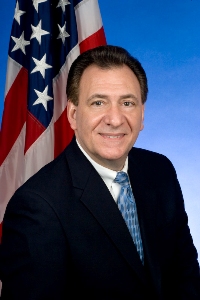 I’m “sick and tired” of having to explain just how much disabled people deserve to work, can work, and want to work, a high-level U.S. Labor Department official says.
I’m “sick and tired” of having to explain just how much disabled people deserve to work, can work, and want to work, a high-level U.S. Labor Department official says.
Neil Romano, assistant secretary, office of disability policy, told the ILG conference today that people still believe the myth that disabled people are receiving plenty of money and don’t need to work. On the contrary, Romano argues: the disabled are innovators who crave the chance at developing products others may not have thought of.
“The marginalization of people with disabilities starts very, very early,” Romano said, speaking from personal experience as a dyslexic. He said every job he has ever received has been from word of mouth, because his disability prevented him from successfully and correctly applying for jobs. “I completely messed up the health care forms at the Department of Labor — so much so that I wasn’t covered for two months,” he jokes. (Romano also tells the endearing story of when he called his mother to tell her the White House nominated him to his job, only to hear his mother respond, “do they know you can’t spell?”)
Disabilities are a running theme of this year’s ILG, with many speakers arguing that disabled job candidates are the next wave of diversity, the next band of talent largely shut out of the workplace, as women and blacks once were.
On the exhibit floor, the Job Accommodation Network is evaluating employer websites for their accessibility. JAN is likely to be busy in future months as the government takes a closer look at the multimedia running on career sites. SSB BART is one private company also in this field.
Meanwhile, Northrop Grumman, the 120,000-employee maker of radar, missile defense, laser systems, satelite systems, and more, is making a special effort to hire the severely disabled. It’s recruiting from job fairs, military facilities, and via word of mouth. “There’s no big list of everyone who’s been injured and is out looking for work,” Northrop HR director Mike Jones says.
Because it’s often hard to translate military skills — for those you who do not offer positions driving tanks — Jones says he’s looking at his effort as “reverse recruiting,” examining candidates’ skills and then seeing where the company may be able to place them.
Northrop expects to hire about 15,000 people this year, and has something like 2,000 different types of jobs open now, from HR to systems administration to secretarial to accounting.